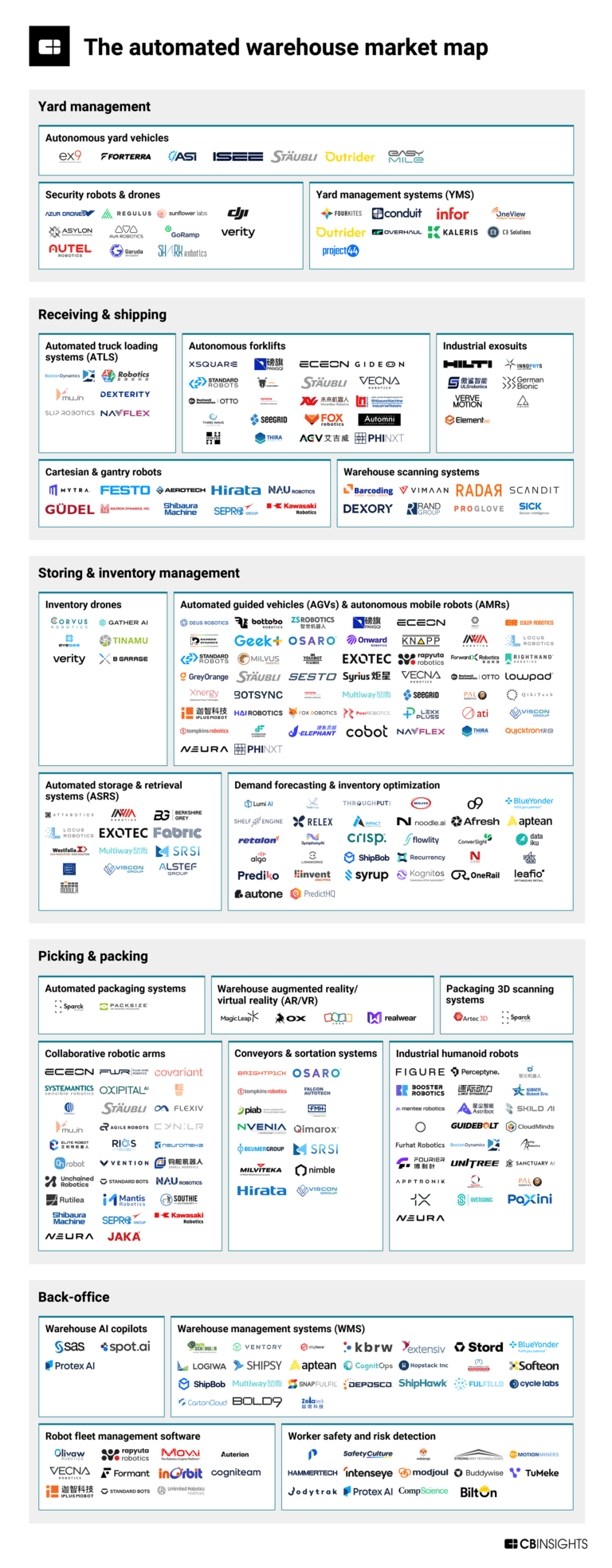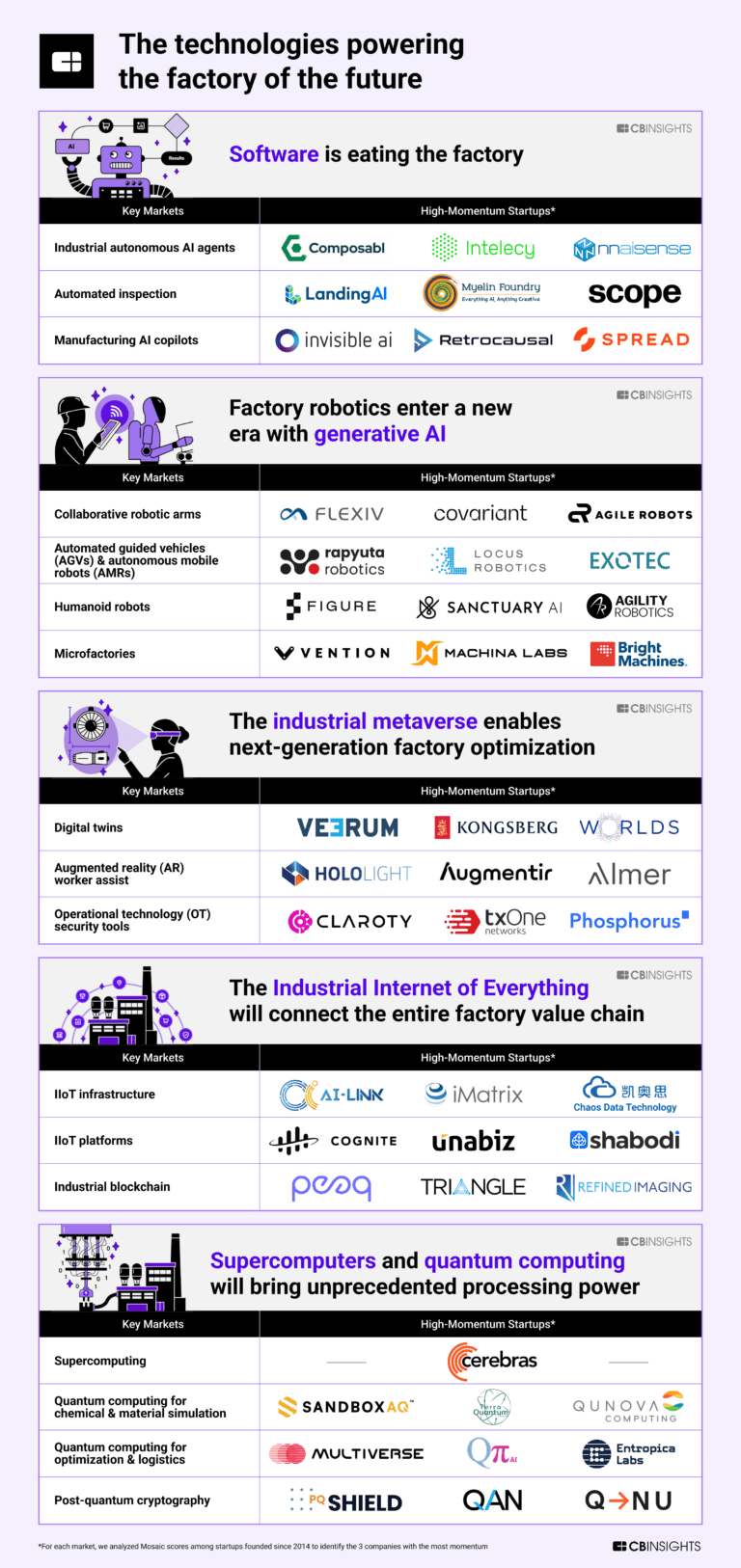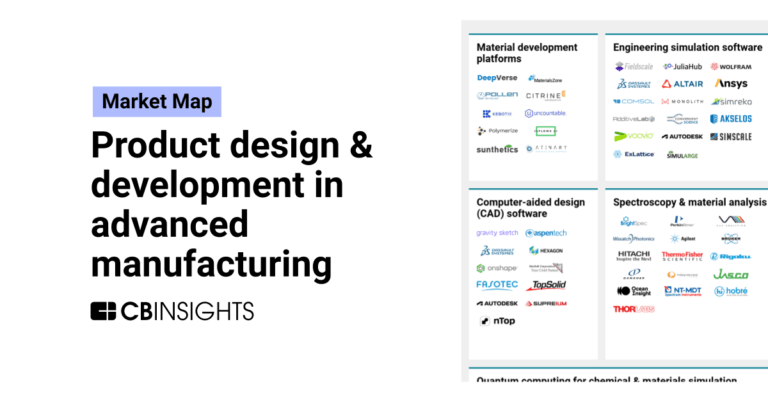
Magic Leap
Founded Year
2010Stage
Debt - II | AliveTotal Raised
$4.524BLast Raised
$590M | 1 yr agoAbout Magic Leap
Magic Leap develops augmented reality (AR) technology in the tech industry. Its offerings include an AR platform for enterprises, designed to support workflows, productivity, and return on investment. Its technology allows teams to collaborate remotely, conduct reviews with 3D visualization, and provide real-time knowledge to frontline workers. The company was founded in 2010 and is based in Plantation, Florida.
Loading...
ESPs containing Magic Leap
The ESP matrix leverages data and analyst insight to identify and rank leading companies in a given technology landscape.
The warehouse augmented reality/virtual reality (AR/VR) market (also called warehouse spatial computing) offers innovative solutions to improve the efficiency and reliability of warehouse order-picking processes. These solutions use AR and wearables to guide workers through picking with clear instructions and tailored user interfaces. These solutions prevent mispicks, reduce productivity losses, a…
Magic Leap named as Highflier among 5 other companies, including TeamViewer, Vuzix, and RealWear.
Loading...
Research containing Magic Leap
Get data-driven expert analysis from the CB Insights Intelligence Unit.
CB Insights Intelligence Analysts have mentioned Magic Leap in 4 CB Insights research briefs, most recently on Feb 13, 2025.

Feb 13, 2025
The automated warehouse market mapExpert Collections containing Magic Leap
Expert Collections are analyst-curated lists that highlight the companies you need to know in the most important technology spaces.
Magic Leap is included in 5 Expert Collections, including AR/VR.
AR/VR
1,509 items
This collection includes companies creating hardware and/or software for augmented reality, virtual reality, and mixed reality applications.
Unicorns- Billion Dollar Startups
1,270 items
Smart Home & Consumer Electronics
1,234 items
This Collection includes companies developing smart home devices, wearables, home electronics, and other consumer electronics.
Advanced Manufacturing
6,609 items
Companies in the advanced manufacturing tech space, including companies focusing on technologies across R&D, mass production, or sustainability
Future of the Factory (2024)
436 items
This collection contains companies in the key markets highlighted in the Future of the Factory 2024 report. Companies are not exclusive to the categories listed.
Magic Leap Patents
Magic Leap has filed 2297 patents.
The 3 most popular patent topics include:
- virtual reality
- mixed reality
- augmented reality

Application Date | Grant Date | Title | Related Topics | Status |
|---|---|---|---|---|
5/11/2023 | 4/8/2025 | Optical devices, Augmented reality, Fiber optics, Photonics, Geometrical optics | Grant |
Application Date | 5/11/2023 |
|---|---|
Grant Date | 4/8/2025 |
Title | |
Related Topics | Optical devices, Augmented reality, Fiber optics, Photonics, Geometrical optics |
Status | Grant |
Latest Magic Leap News
Apr 7, 2025
2030 Featuring Apple, Barco NV, HTC, Magic Leap, Meta Platforms, and More Understand the significant growth trajectory of the Virtual Reality (VR) Technology segment, which is expected to reach US$207.8 Billion by 2030 with a CAGR of a 23.3%. The Augmented Reality (AR) Technology segment is also set to grow at 22.2% CAGR over the analysis period.Regional Analysis: Gain insights into the U.S. market, valued at $35.1 Billion in 2024, and China, forecasted to grow at an impressive 22.3% CAGR to reach $72.4 Billion by 2030. Discover growth trends in other key regions, including Japan, Canada, Germany, and the Asia-Pacific. April 07, 2025 07:29 ET Research and Markets Dublin, April 07, 2025 (GLOBE NEWSWIRE) -- The "Immersive Entertainment - Global Strategic Business Report" report has been added to ResearchAndMarkets.com's offering. The global market for Immersive Entertainment was valued at US$133.6 Billion in 2024 and is projected to reach US$473.9 Billion by 2030, growing at a CAGR of 23.5% from 2024 to 2030. This comprehensive report provides an in-depth analysis of market trends, drivers, and forecasts, helping you make informed business decisions. Immersive entertainment is revolutionizing how audiences interact with content, creating experiences that are engaging, interactive, and deeply personalized. By leveraging advanced technologies such as virtual reality (VR), augmented reality (AR), mixed reality (MR), and extended reality (XR), immersive entertainment transforms passive viewing into active participation. What Factors are Driving the Growth of the Immersive Entertainment Market? The growth in the Immersive Entertainment market is driven by several factors, including increasing consumer demand for interactive and personalized experiences, advancements in immersive technologies, and the growing adoption of digital content across industries. The rising popularity of VR and AR devices, combined with decreasing hardware costs, has made immersive entertainment more accessible to a wider audience. The gaming industry's embrace of immersive technologies, coupled with the rise of esports and live-streaming platforms, has further propelled market growth. The entertainment industry's shift toward hybrid and virtual events has also fueled the adoption of immersive solutions, as they allow organizers to deliver engaging experiences to both in-person and remote audiences. Furthermore, the integration of immersive technologies into education, retail, and healthcare sectors has expanded the scope of applications, driving additional growth opportunities. Advances in content creation tools, such as AI-driven animation and 3D modeling, are enabling faster and more cost-effective production of immersive experiences. As consumer expectations for innovation and interactivity continue to rise, the immersive entertainment market is set to experience sustained growth and evolution. Why is Immersive Entertainment Gaining Momentum Across Industries? The adoption of immersive entertainment is gaining momentum across diverse industries, including gaming, live entertainment, education, and retail. In the gaming sector, VR headsets and motion-tracking technologies have become standard tools for delivering high-fidelity experiences, allowing players to interact with virtual environments in unprecedented ways. Similarly, live entertainment venues and event organizers are incorporating AR and MR overlays to enhance the audience experience, providing real-time data, visuals, and effects that amplify the emotional impact of performances. The education and training sectors are also leveraging immersive entertainment to create engaging learning environments. Simulations powered by VR and AR offer hands-on experiences that enhance knowledge retention and practical skills. Retailers, on the other hand, are using immersive technologies to create virtual showrooms and interactive advertisements that captivate customers and drive engagement. This broad application of immersive entertainment across multiple sectors underscores its versatility and transformative potential, making it a key focus area for businesses looking to innovate and stay ahead of consumer trends. How are Advancements in Technology Fueling Immersive Entertainment? Technological advancements are at the heart of the rapid growth and evolution of immersive entertainment. Innovations in VR and AR hardware, including lightweight headsets, haptic feedback devices, and advanced motion sensors, have significantly enhanced the realism and comfort of immersive experiences. High-resolution displays and improved refresh rates contribute to smoother visuals, while advancements in spatial audio create a more realistic and immersive sound environment. These improvements are enabling developers to push the boundaries of content creation, delivering richer and more engaging experiences. Connectivity advancements such as 5G networks and edge computing are also playing a crucial role in enabling seamless immersive experiences. Faster data speeds and lower latency allow real-time interactions in virtual spaces, making applications like multiplayer VR gaming and virtual live events more accessible and enjoyable. Additionally, artificial intelligence (AI) and machine learning are being integrated into immersive platforms to enable real-time customization of experiences based on user behavior and preferences. These technological advancements are driving innovation, opening up new possibilities for immersive entertainment across industries. Report Features: Comprehensive Market Data: Independent analysis of annual sales and market forecasts in US$ Million from 2024 to 2030. In-Depth Regional Analysis: Detailed insights into key markets, including the U.S., China, Japan, Canada, Europe, Asia-Pacific, Latin America, Middle East, and Africa. Company Profiles: Coverage of players such as Apple, Inc., Barco NV, HTC Corporation, Magic Leap, Inc., Meta Platforms, Inc. and more. Complimentary Updates: Receive free report updates for one year to keep you informed of the latest market developments. Segments Technology (Virtual Reality (VR) Technology, Augmented Reality (AR) Technology, Mixed Reality (MR) Technology, Other Technologies) Application (Gaming Application, Immersive Theater Application, Arcade Studios Application, Music & Concerts Application, Live Events Application, Other Applications) Key Attributes:
Magic Leap Frequently Asked Questions (FAQ)
When was Magic Leap founded?
Magic Leap was founded in 2010.
Where is Magic Leap's headquarters?
Magic Leap's headquarters is located at 7500 West Sunrise Boulevard, Plantation.
What is Magic Leap's latest funding round?
Magic Leap's latest funding round is Debt - II.
How much did Magic Leap raise?
Magic Leap raised a total of $4.524B.
Who are the investors of Magic Leap?
Investors of Magic Leap include Public Investment Fund, NTT DoCoMo, AT&T Ventures, Axel Springer Digital Ventures, Alibaba and 22 more.
Who are Magic Leap's competitors?
Competitors of Magic Leap include Xreal, RealWear, Varjo, Rokid, Plutomen and 7 more.
Loading...
Compare Magic Leap to Competitors

Rokid specializes in Augmented Reality (AR) products and services within the consumer and industrial sectors. It offers AR glasses designed for entertainment, virtual office work, and industrial applications, including remote collaboration, artificial intelligence (AI) powered inspections, and digital workflow integration. Rokid's products cater to individual consumers. It was founded in 2014 and is based in Redwood City, California.

Augmentir is a provider of AI-based connected worker solutions within the industrial sector. The company offers a suite of software tools designed to digitize and optimize frontline processes such as maintenance, quality, safety, and assembly, utilizing skills management, digital workflow, collaboration, and knowledge sharing. Augmentir's platform serves a variety of industries, including manufacturing, service, energy, and construction, to enhance safety, quality, and productivity for the industrial workforce. It was founded in 2018 and is based in Horsham, Pennsylvania.

RealWear specializes in augmented reality technology within the industrial sector. The company offers AI-voice-based smart glasses designed to provide information and expertise for frontline workers while keeping hands and field of view free. Its devices are equipped with atex zone can integrate with software to address the challenges faced by industrial workers. RealWear was formerly known as WearNext. It was founded in 2016 and is based in Vancouver, Washington.
0glass offers an online video platform that offers a wide range of free VIP TV series, movies, variety shows, and animated videos for streaming. Its service is known for its high-speed playback and extensive video library, providing users with a resource-rich viewing experience. It was founded in 2014 and is based in Shenzhen, China.

Xreal develops mixed reality wearables within the consumer electronics sector. It offers mixed reality glasses that provide a wide-screen and vivid display for user experiences. The company offers smart glasses, optical displays, and other visual-related technologies such as spatial positioning and scene recognition. Xreal was formerly known as Nreal. It was founded in 2017 and is based in Haidian, China.

ThirdEye Gen develops augmented and mixed reality smart glasses and AR software applicable in various industries. The company provides products that include wearable technology that allows digital information to be viewed by users, holographic displays for telepresence, and platforms for operating unmanned aerial drones. ThirdEye Gen serves sectors such as healthcare, aerospace, architecture, and education with its AR solutions. It was founded in 2016 and is based in Princeton, New Jersey.
Loading...



